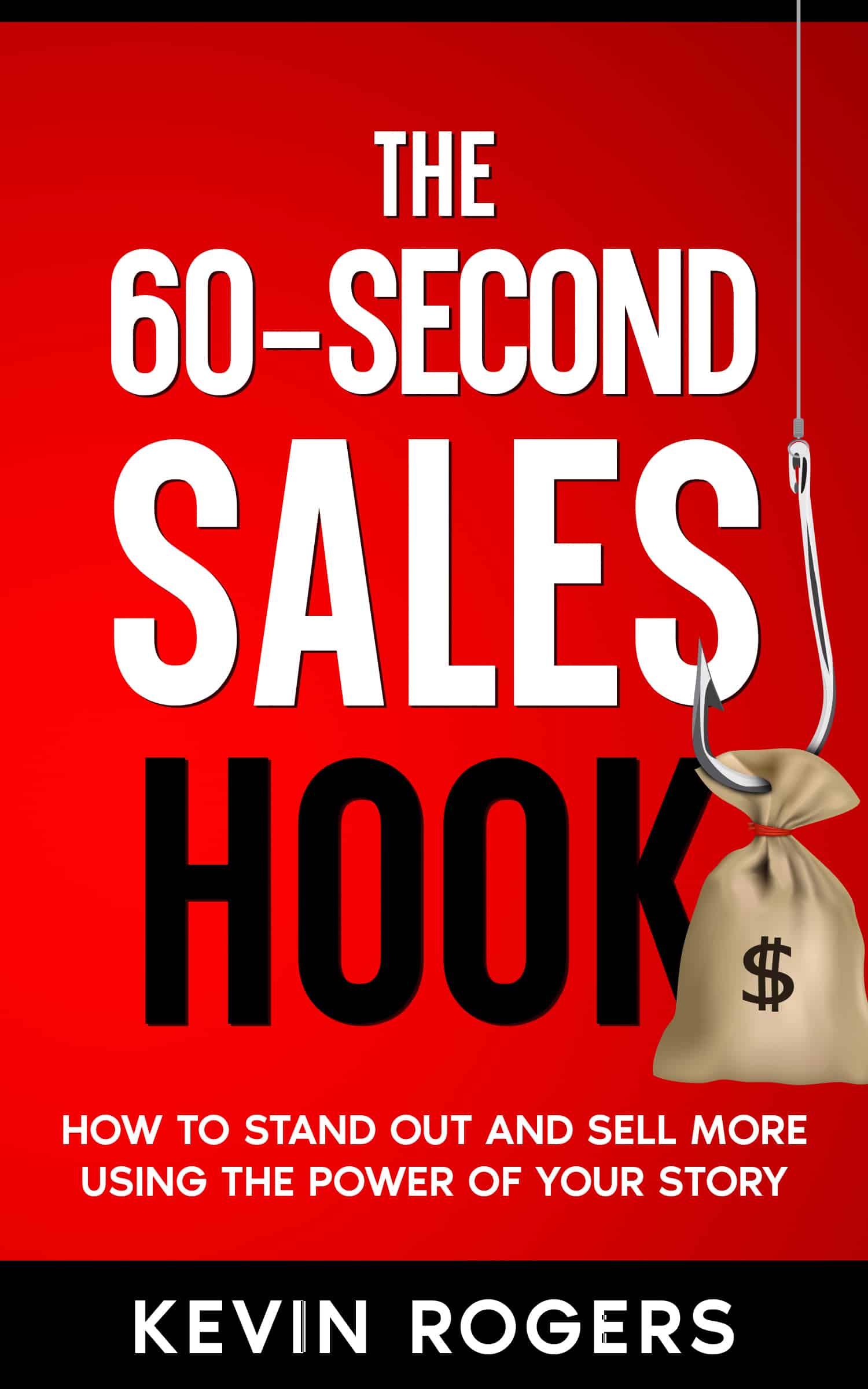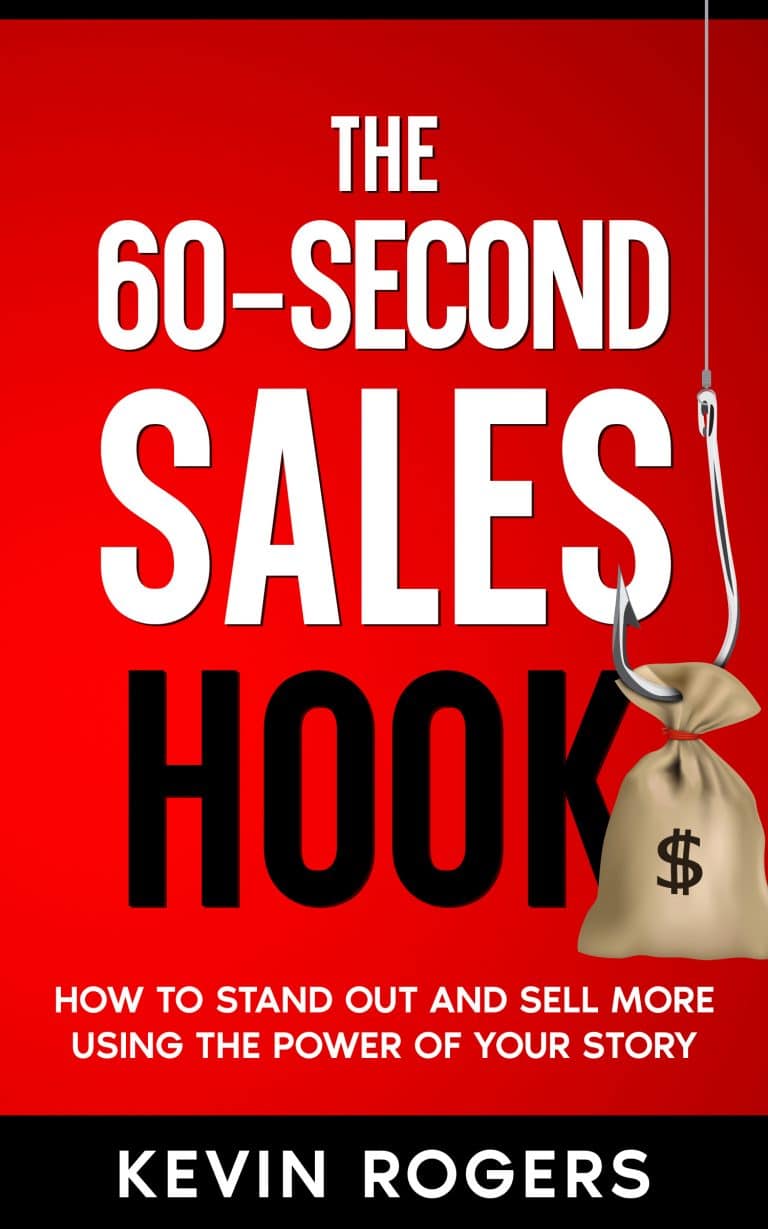
Love him or loathe him, there’s one accusation that can never be levelled at Donald Trump: he’s dull.
You can roll out any number of metaphors for the billionaire and reality TV star’s impact on this presidential race.
A tour de force, a whirlwind, whatever…
But beneath the grandstanding and deeply controversial statements, there are some solid gold lessons in persuasion, selling and influence.
As the Trump juggernaut rolls on, I take a look exactly how he’s managing to control the agenda and continuing winning support despite the controversy surrounding him.
Polarize and popularise: focusing on the prize
Straight off the bat, Trump knew to win the Republican nomination you need two things: momentum and cash.
Well, cash… we don’t need to worry about that, but why momentum?
People back winners. And people back people they think can win. No-one wants to back a loser.
If you’re going into the primaries so far behind in the polls, you need to do something radical to start making a dent in the universe.
Trump already benefits from his stardom so there is a natural pick-up based on name recognition. What he didn’t have was momentum.
One way to best way to engineer that launch your nomination bid with a whole lot of fanfare, press, you know the drill… very forgettable eventually.
Trump’s approach was different. He’s focused narrowly on who he needs to win support from to get the start leading those polls. He ignored the distant prize of the presidency and focused on what he needed next.
He didn’t need wider appeal. He didn’t need to appeal to liberal, disaffected Obama voters or anyone who wouldn’t be able to help him cross that first finish line. He picked a lever point and he came out with all guns blazing.
It was classic “douchefluence” strategy, as perfectly explained by the Douchfluence website:
The amorphous enemy: getting everyone on your side
Do all of Trump’s fans, Republicans and others flocking to his banner love everything about Trump?
When you look at his appeal before the primaries, it’s difficult to see how he’s now such a popular figure.
With his opinions on healthcare and raising taxes, in any other circumstances you’d think he’d be a candidate for expulsion from the current Republican Party.
But it’s not what he DOES stand for that really evokes the emotions of his audience.
It’s what he DOESN’T stand for.
Which is literally ANYTHING his audience wants to fill that gap with.
Yes, he’s pushed himself as anti-Washington and anti-establishment.
That’s a winning move right there.
Remember how Obama used precisely the same tool to bring his message of hope?
But Trump is going further.
Through the campaign even though he’s been vocal on what he does and doesn’t support, on the ground and through social media his followers are filling in the gaps with whatever they believe.
Such is the general dissatisfaction with Washington, politics, Obama, Rosie O’Donnell… well anything which upsets you in your daily life, Trump has positioned himself as the enemy of it.
He’s using the classic persuasion technique of creating a villain against which to mobilise your support.
And he’s purposefully ensured his villain is rendered as a broad amorphous mass, a black hole that include whatever person or institution you see as the biggest problem in the world right now.
I’ve witnessed discussions on social media where Trump supporters who acknowledge his faults in one breath and add “But at least he’s not [insert villain here]”.
Some of these are even contradictory.
But it doesn’t matter.
His position is almost “I’m the enemy of whoever you’re against”.
Heart first, head later: using the power of emotion over logic
In George Orwell’s dystopian political novel 1984, he introduced the concept double-speak.
This was an explanation of what we know now as cognitive dissonance – the ability to hold and believe two competing, contradictory ideas in your mind without any problem.
“I want better public services and I want lower taxes”
“I want better security and I want to stop the government spying on us.”
He creates a situation where you may be feeling this.
If you’re like me, you’ll both hate him and like him at the same time.
What he says is abhorrent, confused, deeply offensive to many people.
But the mere fact that he is saying it feels brave, exciting.
That’s because he stirring an emotional triggers in your brain.
Entirely rational and sensible people who don’t agree with a word Trump says on immigration or whatever else he decides to pontificate on find themselves drawn to him.
Logic and rationality are simply not part of the conversation.
In the world of the limbic brain, driven by the deeply primal amygdala, solutions to the plethora of choices and options in the universe are developed with astonishing efficiency by circumventing logic and reason completely. Our brains will go to great lengths to avoid the heavy lifting of cognitive analysis and induce us to make decisions using emotion.
Source: Business Insider
Your brain is saying “this is different and new and I like it”.
An analysis of his first speech showed deep contradictions in what he was saying, unsubstantiated claims galore and a willingness to ignore.
In Trump’s world details are irrelevant. The media and liberals can argue over those.
What really matters is stamping the impression he wants you to have of him.
He succeeds in painting picutres in your mind – just like any good copywriter.
Like this one:
“When was the last time anybody saw us beating, let’s say, China in a trade deal? They kill us. I beat China all the time.”
It makes absolutely no sense. How can he ‘beat’ China ‘all the time’?
Firstly, he starts on ground he knows he’s an expert (who wrote Art Of The Deal?), then he transforms a deal negotiation into a game.
But you can picture this. You can picture Trump walking into a negotiation with a Chinese representative and killing it.
“Honesty”: being different and owning the conversation
There’s a fine line between “honesty” and “saying every goddamn thing that comes into your mind”.
But honesty is a broad term.
Everyone with strongly held belief is, in their own terms, “honest”.
The kind of “honesty” Trump is dealing with and which his supporters are flocking to is really contrast from the status quo.
Fed up with the bland utterings of career politicians and the Washington establishment, the real attraction lies in not what he’s saying but the fact he’s saying it.
Business Insider quoting Mark Cuban (now a potential VP running mate for Trump) summed up his appeal:
… Cuban said the only thing that mattered was Trump breaking political orthodoxy by saying what was truly on his mind.
“I don’t care what his actual positions are,” Cuban wrote. “I don’t care if he says the wrong thing. He says what’s on his mind. He gives honest answers rather than prepared answers. This is more important than anything any candidate has done in years.”
Indeed, the outspoken investor said Trump “changed the game.”
Source: Business Insider
Further than that, because he’s talking about subjects other candidates fear to broach – and doing it so emphatically and brazenly – he’s taken control of the news agenda.
On immigration he’s forcing the other GOP candidates to reveal positions they either hadn’t considered or wouldn’t want to reveal in detail ahead of the wider presidential race.
By changing and taking control of the narrative, you’re able to dominate the debate.
Certainty: don’t ever, ever back down
It’s Manichean in its simplicity.
Black and white.
Never, ever back down.
As Winston Churchill once said: “When you’re going through hell, keep going.”
Trump – like any good Churchillian – has simply kept going.
He knows that showing a sign of weakness, such as an apology, is not going to further his situation.
That’s what career politicians do.
When he lets rip on Mexican immigrants, global warming or hits back personally at the very people trying to interview him (e.g. accusing Fox’s Megyn Kelly of being on her period), unlike 99% of politicians in the same situation he never issues an apology.
He doesn’t temper his remarks.
He doesn’t backtrack.
And he doesn’t apologise. Ever.
So if he never apologises, how does he maintain his popularity in the face of such controversy.
Well, something interesting happens. He lets the sympathetic political commentators and news media deconstruct his words for him.
He leaves it to them to either add context to his remarks or suggest to viewers they have been taken out of context.
Here’s an example from Fox News where they effectively put the words in his mouth with regards the controversial comments Trump made regarding John McCain’s war record:
He doesn’t need to back down, because his ‘fans’ or ‘tribe’ temper his remarks for him.
The effect: his position remains strong, he isn’t seen as someone who capitulates, yet his incendiary remarks are somehow papered over… until the next speech he makes.
Repeat ad infinitum.
Perception is everything: reframe everything to fit your narrative
Politicians are good at handling other politicians.
They play by politician’s rules.
They have a party whip. They can encourage and threaten.
(Hell, you’ve seen House Of Cards – you don’t need me to tell you how it works)
The problem for politicians is when dealing with someone who isn’t.
And Trump most certainly isn’t.
He’s a reality TV star.
He knows perception is everything.
And so he’ll actively reframe any encounter, make the most of any opportunity to shift public perception in his favor.
For instance, it was reported in the Washington Post that the head of the Republican Committee, Reince Priebus, called Trump to “tone down” his comments on immigration and calm down the debate.
Yet, a day later Trump claimed the same call “congratulatory”, said Prebus told him “he’d really hit a nerve” and that he may be No.1 in the polls, completely contradicting Prebus’s story.
What is really telling is Trump also went on question the length of time Prebus claimed the call was (questioning his credibility) and then saying Prebus “knew better” than to lecture him (questioning his authority).
By bringing ambiguity into the equation, Trump not only muddies the account but exploits it for his own purpose.
In the point above on Certainty I mentioned Churchill (purposefully). Politicians use association with success and strength all the time.
Speaking of Churchill and Trump in the same paragraph, in your mind or in the mind of any reader may go a little way to fusing those two perceptions together, regardless of the causal link between the two.
For Trump, the Reince Prebus call was an opportunity to stamp credibility on his run (regardless of the actual purpose) by suggesting they – the Republican National Committee – were already anointing him. And it’s one which left the GOP leadership flat footed.
“Linguistic kill shots”: labelling your enemies
If you’ve been following Scott Adams’ brilliant and insightful blog series on Trump, you’ll already know the power of the GOP frontrunner’s choice of language.
He successfully applies labels to people to shape your perception.
At the moment, Ben Carson is his closest rival in the primary polls. So how does Trump react?
With surprising grace. He even calls Carson a nice guy.
Wait a minute? Is this the same Trump who doesn’t bat an eyelid laying into the other GOP nominees?
Yes, but he’s doing something smart here by labelling Carson as “nice”.
But in business terms “nice” is NEVER considered a strength. So in applying to label “nice” to Carson, he’s cleverly framing your perception of his future performance when the inevitable questions about dealing with China, Iran and ISIS all arise.
Remember that “I beat China all the time” comment earlier?
“Nice” guys don’t come out too good in a fight.
More recently he’s taken his aim further afield and said Hillary Clinton was a “national security risk” in light of her recent controversies.
With this he’s attempting to anchor those words to Clinton.
Everyone agrees a national security risk is a bad thing.
If he can succeed in anchoring those words to Clinton, it’s very hard to unpick the two.
You already know there is some doubt and ambiguity around her current situation – by pushing the “national security” tag, it’s not too far a leap to push people to joint the dots in their head.
Ride a wave: the right time and the right place
What has helped Trump’s campaign immeasurably is the general movement among the right manifested by the Tea Party influence on the Republican Party.
During Obama’s administration, Republicans were swept into positions of power in the Senate and House. Republicans elected on Tea Party money and with the mood behind them dominated Capitol Hill.
And it was their job to put a stop to Obama.
Did they do it?
NO.
Then, who is going to? Not career politicians with vested interests, it seems.
And so the mood switches to who is best placed.
Dissatisfaction with Washington is always an key part of any election, with candidates scrambling to make out they’re ‘outside’ the Washington elite.
“The Outsider” is a hugely popular narrative.
What gives Trump’s rendering of that character greater strength is that what he is saying and doing is so far removed from what has come before it, particularly from within an established political party.
(Of course, he warned the GOP early on that if they didn’t nominate him he wouldn’t be supporting the eventual winner… and he may even run as an independent.
Will they take that chance?)
With these tactics, Trump can certainly win the Republican Party nomination – momentum is on his side.
However, there is a caveat to at least a few of these points. While people lead on emotion, they like to justify their decisions with logic and rational thought so will this carry through to the wider electorate.
And, can he really win having alienated such large portions of the voting demographic?
(Despite the press constantly saying the wheels are about to come off, Trump has proved them wrong at every stage… but relatively we’re still so early on in the process.)
Perhaps the strength of belief in a Trump presidency is enough to push him through to beating Hillary (if she is nominated).
Until them, grab that popcorn, sit back and keep enjoying the Trump Show.
There’s a whole bunch of sources to discover what else Trump is up to, but here are some of the key sources I used writing this blog post:
- Donald Trump: President of Douchefluence – Brady Irvine https://douchefluence.com/donald-trump-president-of-douchefluence/
- Mark Cuban just praised Donald Trump for being ‘the best thing to happen to politics’ in recent history – Business Insider – http://uk.businessinsider.com/mark-cuban-donald-trump-best-thing-2015-7?r=US&IR=T#ixzz3lEMTholM
- Trump shows speech can have effect without making complete sense – Sam Leith – FT.com http://www.ft.com/cms/s/0/9f995d86-15af-11e5-be54-00144feabdc0.html#axzz3l82KnErg
- GOP leaders fear damage to party’s image as Donald Trump doubles down – Washington Post http://www.washingtonpost.com/politics/trump-could-damage-the-republican-image-party-leaders-worry/2015/07/08/2ec75b4c-25ab-11e5-b72c-2b7d516e1e0e_story.html
- Donald Trump Says R.N.C. Chairman Called to Congratulate Him – NY Times http://www.nytimes.com/politics/first-draft/2015/07/09/donald-trump-says-r-n-c-chairman-called-to-congratulate-him/?_r=0
- Trump engineers linguistic kill shot – Scott Adams – Dilbert.com http://blog.dilbert.com/post/128029718551/trump-engineers-a-clinton-linguistic-kill-shot
- “Nice Guy” – Scott Adams – dilbert.com http://blog.dilbert.com/post/128401835811/nice-guy-part-of-my-trump-persuasion-series#ixzz3lEc9Am6i
Jody Raynsford is a direct response copywriter and author of The Engagement Formula, showing marketers and business owners how to grab their audience’s attention and transform them into lifetime customers. For a limited time, the book is available for free download here.





